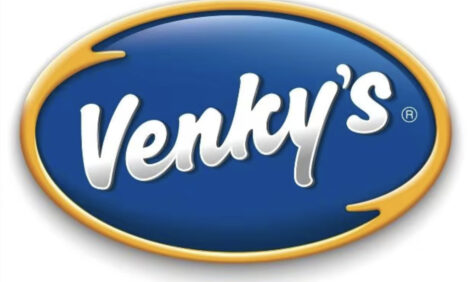



Abuses Against Workers Taint U.S. Meat and Poultry
US - Workers in the U.S. meat and poultry industry endure unnecessarily hazardous work conditions, and the companies employing them often use illegal tactics to crush union organizing efforts, Human Rights Watch said in a new report released today.
In meat and poultry plants across the United States, Human Rights Watch found that many workers face a real danger of losing a limb, or even their lives, in unsafe work conditions. It also found that companies frequently deny workers' compensation to employees injured on the job, intimidate and fire workers who try to organize, and exploit workers' immigrant status in order to keep them quiet about abuses.
Field research for the report examined beef packing in Nebraska, hog slaughtering in North Carolina, and poultry processing in Arkansas. The report looks closely at companies such as Tyson Foods Inc., Smithfield Foods Inc., and Nebraska Beef Ltd.
"Meatpacking is the most dangerous factory job in America," said Lance Compa, the report's author and a labor rights researcher for Human Rights Watch. "Dangerous conditions are cheaper for companies-and the government does next to nothing."
The 175-page report, "Blood, Sweat, and Fear: Workers' Rights in U.S. Meat and Poultry Plants," shows how the increasing volume and speed of production coupled with close quarters, poor training and insufficient safeguards have made meat and poultry work so hazardous. On each work shift, workers make up to 30,000 hard-cutting motions with sharp knives, causing massive repetitive motion injuries and frequent lacerations. Workers often do not receive compensation for workplace injuries because companies fail to report injuries, delay and deny claims, and take reprisals against workers who file them.
"A century after Upton Sinclair wrote 'The Jungle,' workers in the meatpacking industry still face serious injuries," said Jamie Fellner, director of the U.S. Program at Human Rights Watch. "Public agencies try to protect consumers from tainted meat, but do little to protect workers from unsafe conditions."
Human Rights Watch also documented aggressive and unlawful company efforts to derail workers' organizing efforts.
"When workers try to defend themselves by forming unions, employers use fear and intimidation to stop them," Compa said. "U.S. law does little to protect workers who try to organize. Enforcement efforts drag on for years, and even decisions that favor workers are usually too little, too late."
An example of unlawful tactics are those Smithfield Foods has taken in response to organizing efforts at its massive pork-processing plant in Tar Heel, North Carolina, where 5,000 workers slaughter, cut and package more than 25,000 hogs a day. In a 1997 union election, Smithfield's management fired union supporters, threatened plant closure, stationed police at plant gates to intimidate workers, and orchestrated an assault on union activists. On December 16, the National Labor Relations Board ordered a new election, which Smithfield immediately appealed.
In 2000, Smithfield created an internal company security force with "special police agency" status under North Carolina law that enables company security officers to exercise public police powers. In 2003, the company police used trumped-up charges to arrest workers who were active union supporters.
"The company has armed police walking around the plant to intimidate us," a Smithfield worker who came to the United States from El Salvador told Human Rights Watch. "It's especially frightening for those of us from Central America. Where we come from, the police shoot trade unionists."
Increasingly, the meatpacking industry's workforce is composed of immigrant workers. Human Rights Watch found that some employers threaten to call immigration authorities if workers seek to organize or make claims for labor law protection. Under a 2002 U.S. Supreme Court ruling, undocumented workers who are illegally fired for union organizing are not entitled to back pay for lost wages.
"The meatpacking companies hire immigrant workers because they are often the only ones who will work under such terrible conditions," said Fellner. "And they exploit the illegal status of undocumented workers to keep them quiet."
Human Rights Watch includes detailed recommendations in the report. In broad terms, the organization makes the following recommendations:
New federal and state laws should reduce line speed in meat and poultry plants and establish new ergonomics standards to reduce repetitive stress injuries. Health and safety authorities should apply stronger enforcement measures. States should develop stronger worker compensation laws and enforcement mechanisms.
Employers should not engage in aggressive, intimidating anti-organizing campaigns that take advantage of loopholes and weaknesses in the U.S. labor law system. Congress should enact legislation bringing U.S. labor law into compliance with international standards (e.g. to prohibit the permanent replacement of striking workers) and should also create stronger remedies for violations of workers' rights.
New laws and policies should ensure respect for the human rights of immigrant workers, whatever their legal status. Immigrants should have the same workplace protections as non-immigrants, including coverage under fair labor standards and other labor laws, and the same remedies when their rights are violated.
"Blood, Sweat, and Fear" follows Human Rights Watch's groundbreaking 2000 report, "Unfair Advantage," also written by Lance Compa, which documented employer efforts to frustrate worker organizing across various sectors of the U.S. economy.
Source: Reuters - 26th January 2005








